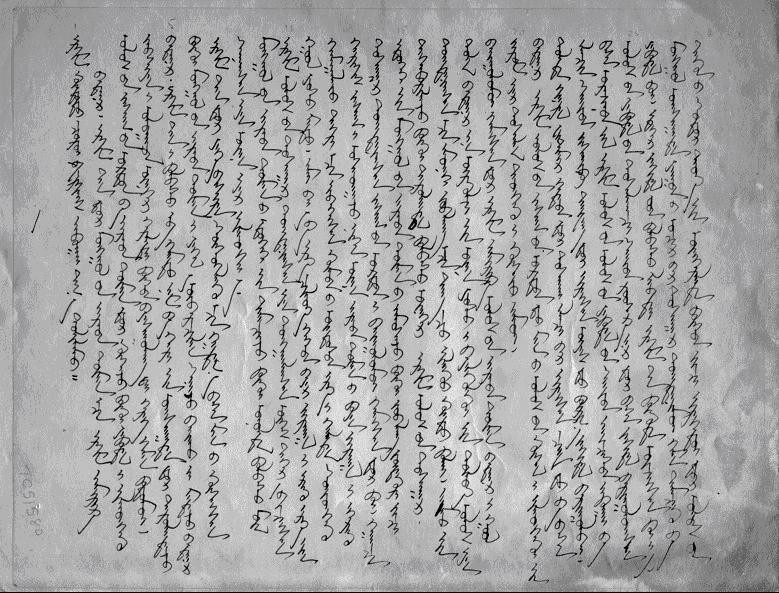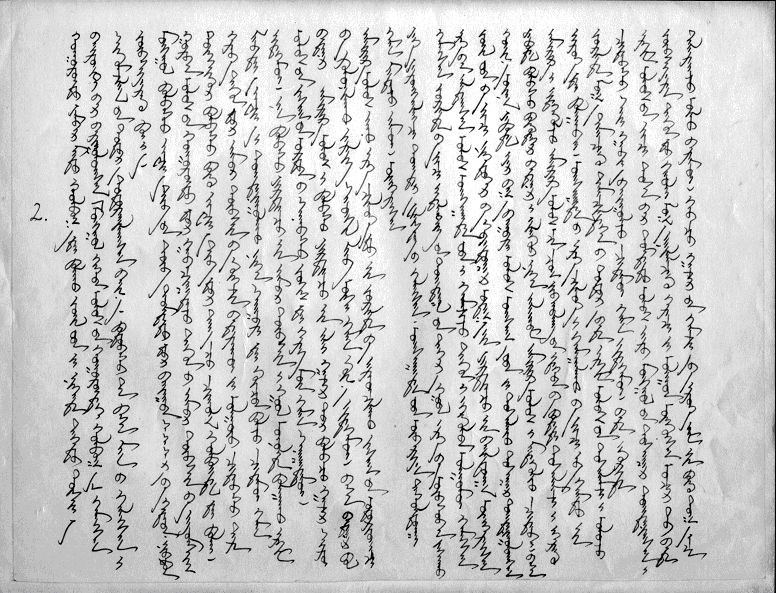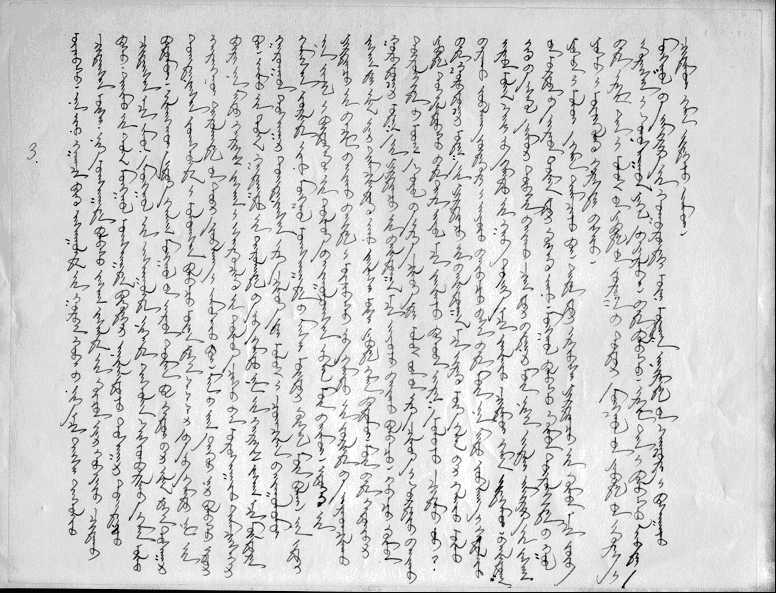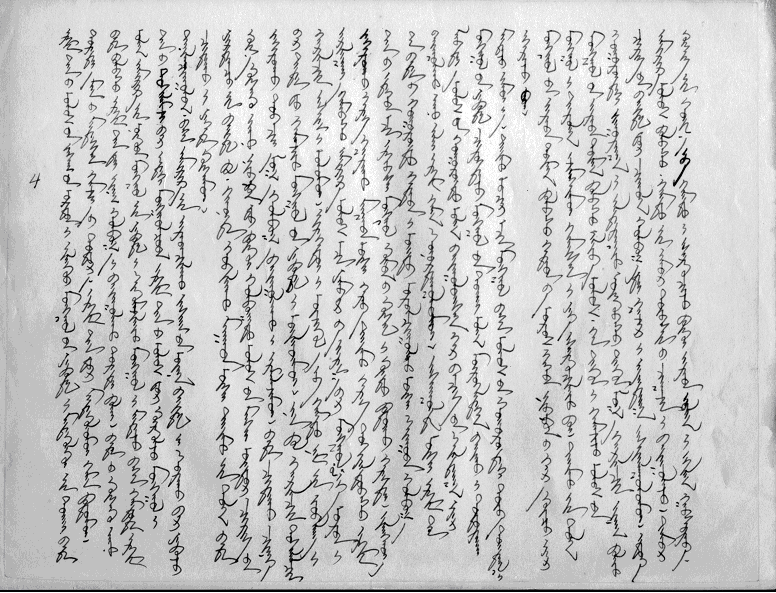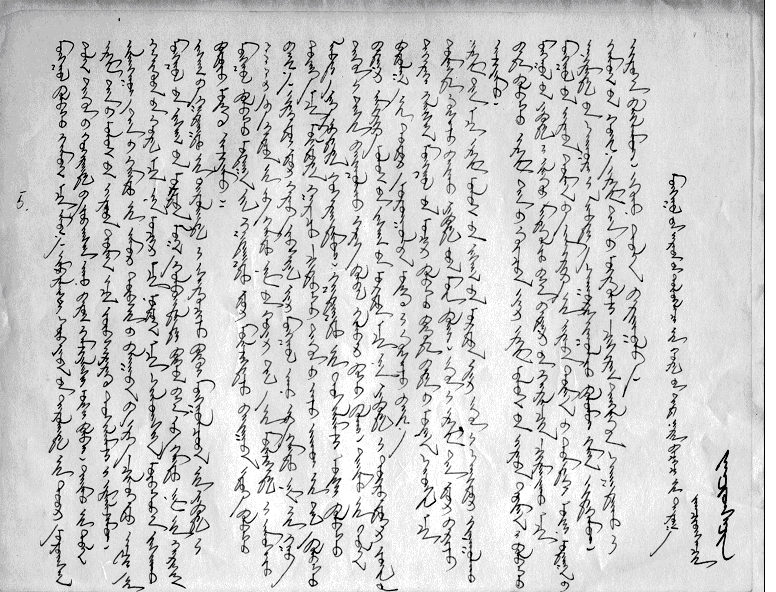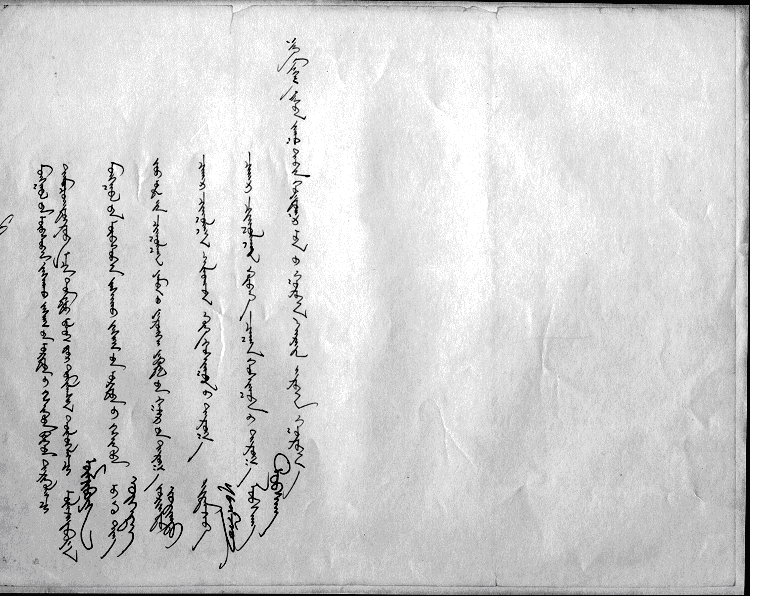In the Spring of 1952 I was approached by an official of the United States Embassy in London with a request that I translate into English a Mongol handwritten document sent to the Embassy by the U.S. Department of State. At that time I was a member of the Oriental Faculty of the University of Cambridge where – among other topics – I taught also Classical Mongol. My logical question of why it was necessary to send the document to London when, no doubt, there were people in the U.S. who could have done the job was brushed aside by the Embassy official: it was not his business nor mine to query the justification of the request. The question is simple, could and would I translate the document? Although never before had I looked at a Mongol text written after the seventeenth century, I accepted the challenge, transcribed and translated the text, accepted a misery honorarium, and forgot the whole story.
Now, at the very end of a long life there can be no hope to publish this text according to the highest standards. I have not read Mongol texts for some forty years, my knowledge of twentieth century Mongol history is minimal. I have neither the strength nor the knowledge to publish this text with the competence to make public this document as I found it in my files with all its imperfections. My old friend John R. Krueger will, so I hope, sympathize with this decision.
***
I was unable to identify the individual Choroi Perkins (?). the recipient of the letter. The other Americans mentioned in the document are, in order of their appearance:
General Alber C. Wedemeyer (1897-1989). In 1944 appointed Chief of Staff to Chiang Kai-shek and Commander of American Forces in China. He retired in 1951.
Philip C. Jessup (1897-1986). In 1951 US delegate to the United Nations.
Dean Acheson (1893-1971), U.S. Secretary of State, 1949-1952.
Dean Rusk (1909-1994), Deputy Under-Secretary of State, 1949, Assistant Secretary of State for Far Eastern Affairs, 1950, Secretary of State under President John F. Kennedy and Lyndon B. Johnson.
A 1952 Mongol Document (English Translation)
Dear Honorable Mr. Choroi Perkins, (we) submit (this) to you.
We were given the opportunity to submit the wishes of the Mongol people to the esteemed government of America and her people and consider this a really bright and happy event.
Knowing that you have friendly feelings towards the Mongol people oppressed by the Communist Party and foreigners, we would like to express to you our sincere esteem and also our thoughts and wishes.
As for the essence of the present struggle of the Mongol people, it is contained in what has been said, similarly to the Constitution written on the basis of the Declaration of Independence of the Esteemed State [i.e. the United States of America]: “Protention of personal freedom, and the right happiness. Removal of the reactionary government destroying the fundamental human rights protected by the Heavens. Organization of an independent government pursuing the aim of real prosperity and happiness of the people.”
However, the sufferings which the Mongol people are undergoing at the present time and the oppression suffered by them are incomparably greater than the sufferings of the Right Esteemed Nation prior to independence. Therefore, when we said that we should establish our own state in order to achieve this just once and for ever, we express our desire that the people of the Esteemed American Nation protect and help us in principle.
In order to submit the desire of our people to the Esteemed Government, we submitted a letter at the time when General Wedemeyer (?) arrived in China in his capacity as an ambassador extraordinary and also to Minister Jessup (?) at the time of his arrival in Taiwan.
And a letter was also submitted to the Secretary of State of the Esteemed Nation, Mr. Acheson (?) and also the Deputy Minister of State, Rusk (?). You, Honorable Sirs, have certainly read those letters.
The question why the Mongol nationals are struggling for independence and all the problems connected with the international situation in past history and in the future are elucidated in the article “Mongolia and International Union” by the high official Beirut (? Beirum ?). As we imagine, you probably approve of what we have stated.
Mongolia is situated at the center of the Asian continent, squeezed between three countries: the U.S.S.R., China and Japan. Here peace and prosperity and all calamities are very closely connected with the whole Asian continent. If peace and prosperity can be granted to her, we believe, she certainly will be able to become one of the main forces of consolidation of Asia. We think this is something the Esteemed Government, pursuing World Peace as its fundamental task, should take into consideration.
We firmly believe that America certainly has no cruel territorial or colonial intentions towards any country in the world. We also know that America is the leader of freedom and democracy. The late great Dr. Wilson (?) said that the nations themselves should decide, and this idea and also the statements concerning the fundamental rights on the basis of the Atlantic Charter, assistance to nationalities who have lost their sovereignty and the restoration of the latter, and also the substantial help given to small and underdeveloped countries after World Wars I and II, and the establishment of their independence, all this has brought our knowledge of America a good step further. This also gave confidence in America and encouraged hope of ideological and material assistance by America.
We believe that if we can get assistance from the Esteemed Nation in the defense of our national freedom and in the struggle against Communism, then we shall show ourselves worthy of it.
Thanks to the Esteemed Nation the independence of Northern Mongolia was recognized by China and a legally valid treaty was made, which we shall never cease to appreciate. However, this alone was not able to solve more than one third of all problems concerning the size of territory and number of the population. As for people of one nationality, it is not possible to partition them by governmental force. Therefore we do not consider the Mongol question as solved once and for all before all the Mongol nationals unite and establish their independence. Especially the masses of the people of present day Khalkha, no matter what their official status of independence may be, in reality are suffering under the dark oppression of the U.S.S.R. and the Communist Party. Our brothers continue to shed their blood for the sake of resistance to such a cruel government. Therefore, the aim of libration from the foreign yoke and the cruel Communist regime, and the establishment of an independent and free state, is the most sacred desire with the purpose of realizing this work. If we consider the present precarious world situation, we think that an overt struggle between Communism and democracy is inevitable. No matter how much we are afraid of a third World War, can we find another way to escape that menace if we are confronted with the opportunity to learn the civilization of humanity and liberty of free peoples. Although we are afraid of the sufferings and privations caused by a third World War, which cannot be described in words, we believe that we shall also be able to overcome these sufferings and [free] the people from the chains of Communism.
This is what we wish to say to American government and people:
The Mongol people are struggling in order to obtain human rights, no matter whether there is war or peace. And it is absolutely necessary that the people of the whole world show justice to them. We are glad to hear that you, honorable Sir, are entrusted with Mongol Affairs in the State Department (?). We are sure that you, honorable Sir, will be able to lay the foundations of a long-term treaty between Mongolia and America.
As for giving more information about Mongol Affairs to your Government, honorable Sir, we think we should give it to you to the best of our knowledge. We are willing to establish a friendly contact with you. Our desire is: We wish that all American friends should discuss Mongol affairs and know Mongolia; that with your help, Sir, the Mongols here be given an opportunity to reach your country, make others acquainted with Mongolia and be able to travel in order to study the real nature of American Democratic Government.
The world situation may suddenly change and, therefore, we sincerely wish to establish contact with the High Command of the U.S. Forces stationed in Japan. We will assist them as much as we can to run Mongol affairs. This co-operation will bring mutual advantages. As for the future and the removal of the suffering caused by the Communists, there may, perhaps, arise the necessity of the American Government taking over, in some form, the administration of Mongolia. If such as situation arises, it is necessary that you, Sir, absolutely respect the aspiration of the Mongols. First of all, the Chinese should not be allowed to participate in anything between you and us, but an immediate contact should be established, and this to be an important problem. Certainly treaties and agreements will know perfectly well all the controversies concerning Mongolia. Therefore, the Mongols desire also an international solution.
The Mongol people categorically object to what is said about the oppression of the Mongols in consequences of the Chinese, Russian and Japanese treaties. Therefore the Mongol people will establish friendship with any country willing to help and free them from international injustice and will automatically cede [to such country] strategically important areas. At the present time the American people has created peace and started to unite the peoples struggling behind the Iron Curtain. The Mongol people has become the first victim of oppression by imperialistic elements and therefore the impoverishment and sufferings there have become almost immeasurable. Therefore we would wish to receive also adequate material help from your people.
First of all, the assembly of your Commonwealth and that of the members of free Asia should discuss the affairs of the Mongols associated with the independent Government-in-Exile of Mongolia and struggling against the foreign oppression and cruel Communist Government. The above statements concerning Mongolia are desires expressed ten thousand times from the bottom of our hearts. We submit them to you, Sir, and we ask you to forward them for a thorough discussion to your Government.
Through your mediation, Sir, we inform the people of your country and we are confident that the foundation for a long-term treaty between America and the Mongol people can be laid through our mutual efforts.
To conclude, we express our benedictions and wishes of permanent good health, to you, Sir. This is the reason for submitting this letter.
(Signed):
Janchidsechin, Second Secretary of the Assembly of Representatives of the Mongol People.
Oljeibuyan, Representative assigned to China by the Member and President of the Independent Mongol Government, Demchocdondob.
U Ku Ting, Member of the Independent Mongol Government.
Idamjab, Chief of the General Department of the Office of the League Joo Uda, Chief of the Plain Blue Banner of the Chakhar League.
Lubsang, Chief of the Banner With The White Margin of the Chakhar League.



